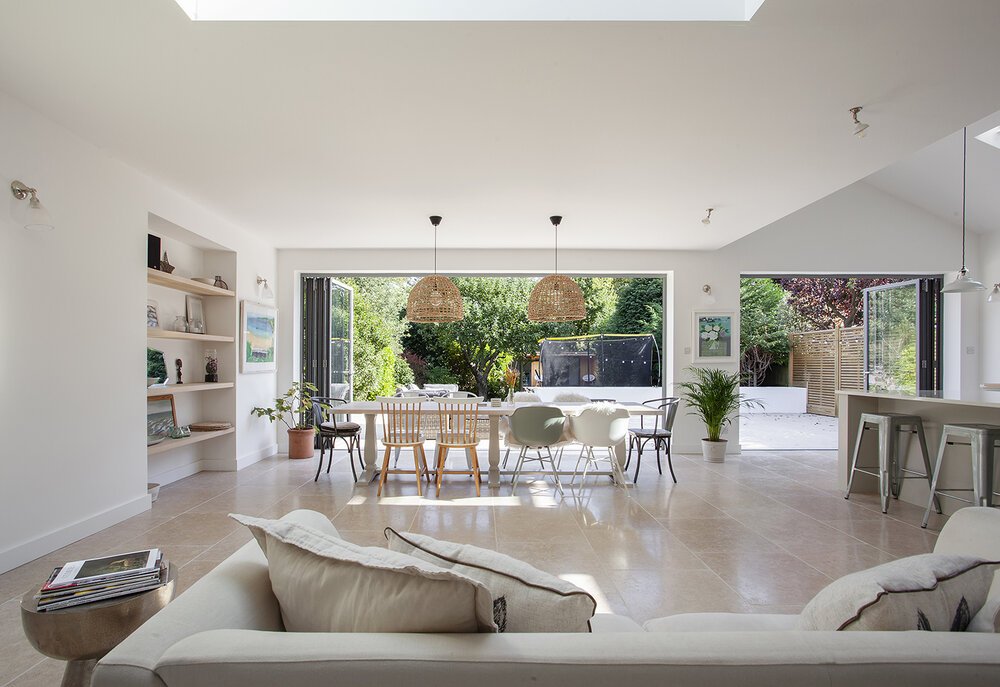If you're considering extending your home or property, you already know it's a major investment. Maximizing that investment requires careful planning and budgeting. From adding an extra room to expanding your living space, a well-executed extension can increase your property value and create a more comfortable living environment.
In this article, we will provide you with tips and strategies for planning and budgeting your extension cost effectively. Whether you're working with a limited budget or have more flexibility, we've got you covered. Our aim is to help you make informed decisions, avoid unnecessary expenses, and ensure that your extension project is a success.
We will discuss key factors to consider when planning your extension, such as design ideas, local regulations, and finding reliable contractors. We will also explore budgeting techniques and offer advice on cost-saving measures without compromising on quality. Our goal is to empower you with the knowledge and insights needed to make the most of your investment and achieve the extension of your dreams.
The importance of planning and budgeting for extension costs
Planning and budgeting are essential steps in any extension project. Without a clear plan and budget in place, you may encounter unexpected costs, delays, and other challenges along the way. By taking the time to plan and budget properly, you can minimize risks and maximize your investment.
When planning your extension, it's important to consider your goals and objectives. Are you looking to create additional living space? Or do you need an extra room for a specific purpose, such as a home office or a playroom for your children? By clearly defining your goals, you can ensure that your extension meets your specific needs.
Another important factor to consider is the design of your extension. It's crucial to create a design that complements your existing property and blends seamlessly with its surroundings. This not only enhances the aesthetic appeal but also adds value to your property.
Factors to consider when budgeting for an extension
Before you start budgeting for your extension, it's important to consider various factors that can affect the overall cost. These factors include the size and complexity of the extension, the materials and finishes you choose, and any additional features or amenities you want to include.
It's also important to take into account any local regulations or permits that may be required for your extension. Depending on where you live, there may be specific building codes or zoning restrictions that need to be followed. Failing to comply with these regulations can result in costly fines or delays in your project.
Additionally, you should consider the potential impact on your property value. While an extension can increase the value of your home, it's important to ensure that the cost of the extension does not exceed the potential increase in value. It's a good idea to consult with a real estate professional or a property valuer to get an estimate of the potential return on investment.
Researching and estimating extension costs
Once you have a clear understanding of your goals and the factors that can influence your extension cost, it's time to research and estimate the costs involved. This can be done by gathering quotes from architects, suppliers, and other professionals involved in the project.
To get accurate estimates, it's important to provide detailed information about your extension plans. This includes the size and layout of the extension, the materials and finishes you want to use, and any additional features or amenities you require. The more specific you can be, the more accurate the estimates will be. This is where hiring a qualified architect can pay substantial dividends.
It's also a good idea to do some research on average extension costs in your area. This can give you a rough idea of what to expect and help you identify any potential cost-saving opportunities.
Creating a comprehensive extension budget
Once you have gathered all the necessary information and estimates, it's time to create a comprehensive extension budget. This budget should include all the costs associated with your extension, including materials, labor, permits, and any additional expenses.
Start by researching an estimated cost per square metre in your area. Be sure to include a contingency fund to account for any unexpected expenses that may arise during the project. It's a good idea to set aside at least 10% of your total budget for contingencies. Also do not forget VAT and keep in mind that this estimate should be treated as a very rough rule of thumb and not a reliable figure.
Next, prioritize your budget items based on your goals and preferences. If you're working with a limited budget, you may need to make some tough decisions and cut back on certain items. However, it's important to strike a balance between cost-saving measures and quality to ensure a successful outcome.
Tips for maximizing your extension budget
While it's important to create a realistic budget, there are several tips and strategies that can help you maximize your extension budget without compromising on quality.
First, consider the timing of your extension. Construction costs can vary depending on the time of year and market conditions. By scheduling your extension during the off-peak season or when contractors are less busy, you may be able to negotiate better rates.
Second, explore different material options. While high-end materials may be appealing, they can also significantly increase your costs. Look for cost-effective alternatives that offer similar benefits and durability. Remember, it's not always necessary to choose the most expensive option to achieve the desired result.
Third, consider doing some of the work yourself. If you have the skills and experience, taking on certain tasks can help reduce labor costs. However, it's important to be realistic about your abilities and only take on tasks that you're confident you can complete successfully.
Exploring financing options for your extension project
If you're working with a limited budget, you may need to explore financing options to fund your extension project. There are several options available, including personal loans, home equity loans, and home improvement loans.
Personal loans are unsecured loans that can be used for any purpose, including home renovations. They typically have higher interest rates and shorter repayment terms compared to other loan options.
Home equity loans allow you to borrow against the equity in your home. These loans offer lower interest rates and longer repayment terms, making them a popular choice for financing home improvement projects.
Home improvement loans are specifically designed for funding renovation projects. These loans often have lower interest rates and flexible repayment terms, making them an attractive option for extension financing.
It's important to carefully consider the terms and conditions of each financing option and choose the one that best suits your needs and financial situation. Be sure to compare interest rates, fees, and repayment terms to find the most favorable option.
Working with professionals: Hiring an architect and contractor
To ensure the success of your extension project, it's important to work with professionals who have the necessary expertise and experience. This includes hiring an architect to design your extension and a contractor to oversee the construction process.
An architect can help translate your ideas into a practical design that meets your needs and complies with local regulations. They can also provide valuable advice on materials, finishes, and other design elements. A thorough design will also allow to get precise quotes from several builders.
When hiring a contractor, it's important to do thorough research and obtain multiple quotes. Look for contractors who have experience in similar projects and have a good reputation in the industry. Ask for references and check online reviews to ensure that you're hiring a reliable and trustworthy professional.
Avoiding common budgeting mistakes during the extension process
During the extension process, it's important to avoid common budgeting mistakes that can undermine your project's success. One common mistake is not allowing for potential changes or modifications during the project. It's natural for things to evolve as the construction progresses, and you may need to make adjustments along the way. Be prepared for these changes and have a contingency fund in place to accommodate them.
Finally, it's important to track and monitor your extension budget throughout the project. Regularly review your expenses and compare them to your budget to ensure that you're staying on track. If you notice any significant deviations, take immediate action to address the issue and avoid any cost overruns.
How to track and manage your extension budget effectively
Tracking and managing your extension budget effectively is crucial to the success of your project. Here are some tips to help you stay on top of your finances:
1. Use a spreadsheet or budgeting software to keep track of your expenses. This will allow you to easily monitor your spending and identify any areas where you may be overspending.
2. Regularly review your budget and compare it to your actual expenses. This will help you identify any discrepancies and take corrective action if needed.
3. Communicate regularly with your contractor and other professionals involved in the project. Keep them informed of your budget constraints and ensure that they are aware of any changes or modifications that may affect the cost.
4. Be proactive in managing your budget. If you notice any potential issues or cost overruns, address them immediately to avoid any further complications.
By following these tips, you can effectively track and manage your extension budget, ensuring that your project stays on track and within your financial limits.
Conclusion: The benefits of proper planning and budgeting for your extension project
Proper planning and budgeting are essential for maximizing your investment and ensuring the success of your extension project. By taking the time to carefully plan your extension and create a comprehensive budget, you can minimize risks, avoid unnecessary expenses, and achieve the extension of your dreams.
Consider your goals and objectives, research and estimate extension costs, and create a realistic budget that prioritizes your needs. Maximize your extension budget by exploring cost-saving measures and financing options.
Work with professionals who have the necessary expertise and experience, and avoid common budgeting mistakes during the extension process. Track and manage your extension budget effectively to stay on top of your finances and ensure a successful outcome.
By following these tips and strategies, you can make the most of your investment, create a more comfortable living environment, and increase the value of your property.










